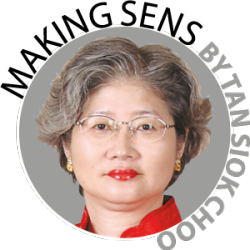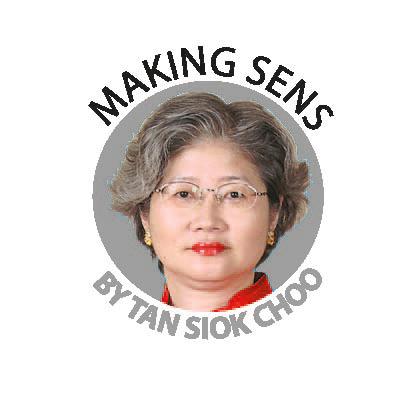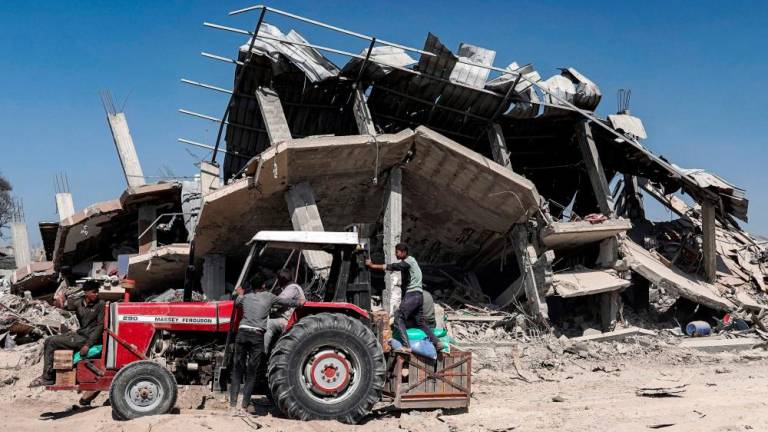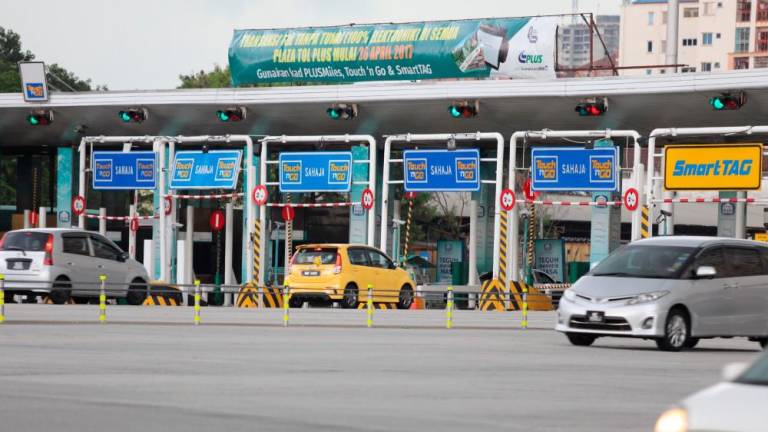“THE world is now playing a game of Go, not chess where the moves are restricted and logical” – this was Tan Sri Andrew Sheng’s response to a question after his presentation titled “Investing in the Geopolitical-Digital-Disruption Age” organised by Kenanga Investment Bank for fund managers last week.
Sheng’s choice of metaphor is brilliant: Go encapsulates the unpredictability of outcomes, allows any country or company to emerge a winner through strategic placement and underscores the importance of nurturing a global, non-linear mindset.
A Distinguished Fellow of the Asia Global Institute at the University of Hong Kong and former director of Khazanah Nasional Berhad, Sheng outlined six mega-trend disruptors.
First is the shift from a unipolar to a multipolar world as other nations catch up with the US.
Second is the geographical shift from West to East.
Third is the gender shift as women get richer and earn more.
Fourth is the generational shift as the rich grow older and the young face a jobless future.
Fifth is the geo-climate shift due to shortages of water, food and energy.
Sixth is the tech shift due to technology that impacts jobs and causes creative disruption.
Known as “Wei Qi” in China, its country of origin, Go – like chess – requires skill, rather than chance, for victory. In chess, the pawns, rooks, knights, bishops, queen and king have designated moves and each piece has different values that change as the game progresses.
Unlike chess, the roundels in Go are either black or white in colour, all equal in value and all able to move in any direction; the result is endless permutations. Played on a board with 19 squares on each side, the two Go players take turns to place a roundel on one of the 361 grid points with the aim of encircling the opponent’s roundels. The winner is the player who has won the largest territory.
In his Powerpoint presentation, Sheng said Asia is the fastest growth region and is set for the greatest changes in technology, sustainability and environment.
Asia is growing more than twice as fast as the US and the European Union (EU) combined. Based on 2017 data, the gross domestic product (GDP) of Asia – comprising the northeast, southeast and south – is expanding at a weighted growth rate of 5.2% compared with 2.3% for the US and EU together.
GDP is the total value of goods and services produced in a country within a year.
Sheng described the US-China trade war as a technological Thucydides Trap.
Greek historian Thucydides argued it was the growth of Athens which caused fear in Sparta that made war inevitable. Coined by Graham Y. Allison, the term, “Thucydides Trap”, refers to a war spurred by a rising power threatening an established hegemon.
Investing in 2019 will be unusually volatile, as business and political sentiment will shift with big swings. This creates an opportunity, despite the risks – but only for the brave and nimble, Sheng says.
The biggest risk is blindness to a paradigm shift, Sheng suggests. This includes being oblivious to the fact the old paradigm is no longer working and using the wrong framework to think through issues and options, Sheng said.
He highlighted several paradigm shifts. Models for Value at Risk define risk as measured volatility but ignore radical uncertainty. In the stock market, the longest bull-run in history – as measured by the Standard & Poor’s index – was underwritten by US$14 trillion of quantitative easing (QE) by central banks coupled with US$4 trillion of share buybacks.
Under QE, central banks expanded their balance sheets by buying government bonds or any other asset; a move that pumped liquidity into the economy, effectively lowered interest rates, inflated asset prices and created bubbles.
The world now faces the largest inequality in history – 0.1% of the US population gained 12 percentage points in wealth in the last 30 years at the expense of 90% of the population, Sheng said.
Climate change is deadly serious but is denied by Trump, Sheng added. The exodus of Syrians from their homeland to Europe was triggered by four years of drought. Immigration issues are prompted by shortages of water, food and energy which are due to climate change.
Malaysia needs to rethink its spending on education which is two percentage points of GDP higher than that of its Asean neighbours.
Are this country’s education policies which are largely linear – from schools to universities to hopefully jobs – producing graduates that meet employers’ needs?
Furthermore, technology is changing so fast that when students graduate from universities, the technology they have learnt may be obsolete.
“We are transiting from the old order to a new order. We are ‘becoming’ – like the title of Michelle Obama’s biography – but we don’t know what we are becoming,” he said.
Opinions expressed in this article are the personal views of the writer and should not be attributed to any organisation she is connected with. She can be contacted at siokchoo@thesundaily.com














